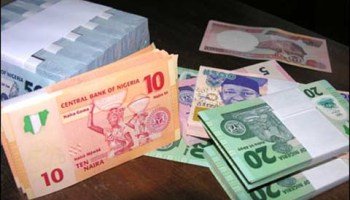Britain to Add Naira to List of Accepted Trade Currencies
Britain’s Export Finance Agency will add the Naira to its list of “pre-approved currencies”, allowing it to provide financing for transactions with Nigerian businesses denominated in the local currency.
The Naira will become one of three West African currencies that UK Export Finance has pre-approved for its programme of funding transactions that promote trade with Britain, it said.
Britain voted to leave the European Union in 2016, which has forced London to rethink its trade ties with the rest of the world. It has said it would start preliminary talks with India about an eventual bilateral trade deal.
The United Kingdom and the EU struck an agreement in December that opened the way for talks on future trade ties.
“This is a clear indication of how much value the UK places on its relationship with Nigeria. It will provide a firm foundation for a significant increase in trade and investment between both countries,” Reuters quoted the British High Commissioner to Nigeria, Paul Arkwright, to have said in the UK’s credit agency statement. The statement said the UK would provide up to 85 per cent of funding for projects containing a minimum of 20 per cent British content.
“The Naira financing will follow the same structure as someone buying in sterling, except that Nigerian firms taking out a loan in local currency can benefit from a UK government-backed guarantee.
“This can enable businesses to manage foreign exchange risks and, many times, to negotiate better terms with local banks.”
Meanwhile, the Central Bank of Nigeria (CBN) once more intervened in the Retail Secondary Market Intervention Sales (SMIS) yesterday to the tune of $325.64 million.
Figures obtained from the bank indicated that the amount released was for requests in the agricultural, airlines, petroleum products and raw materials and machinery sectors.
The figures were confirmed by the bank’s Acting Director in charge of Corporate Communications, Mr. Isaac Okorafor, who noted that the continued intervention were in line with the assurances made by the CBN Governor, Godwin Emefiele, to sustain market liquidity in order to boost production and trade.
According to Okorafor, the feedback from the wholesale and retail segments of the Nigerian Forex markets showed that customers were satisfied with their level of access to foreign exchange.
He said the degree of optimism displayed by all players underscored the fact that everyone was happy with the level of transparency in the market. Speaking further, Okorafor assured that, with the recession now over and foreign reserves now standing at $42 billion, the CBN had enough in its arsenal to maintain the international value of the Naira as well as guarantee access to forex by those requiring it to meet genuine needs.
He also reiterated that the desire of the bank to ensure that all, particularly low end users, had access to foreign exchange to meet genuine needs prompted the Bankers’ Committee, in its first meeting of 2018, to agree to sell United States dollars to those requiring it for invisibles at the rate of N360/$1, without any commission whatsoever.
It will be recalled that the CBN in its last SMIS, in January 2018, injected the sum of $304.4 million in the inter-bank Foreign Exchange Market.
From a chaotic foreign exchange system in the first half of 2017, due to the activities of speculators, currency traffickers among others, which saw the naira dropping to as low as N525 to a dollar, the naira has since stabilised at N360 to a dollar across various segments of the forex market.
The stability was majorly driven by a raft of forex policies that were introduced by the Central Bank which included the I & E window.
The surge in activities at the window had been attributed to offshore investor interest in treasury bills and the primary market auctions (PMA) by the CBN, with the resulting inflows leading to a convergence between the parallel market exchange rate and the Nigerian Autonomous Foreign Exchange Market (NAFEX) rate, also known as the I&E Forex window.
Most activities now occur on the I&E window, with Fitch Ratings recently acknowledging that the rate on the I&E “should now be considered the relevant exchange rate